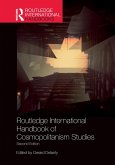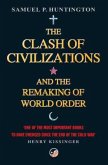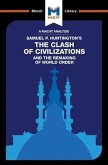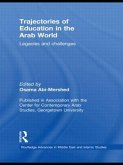While globalization unifies the world, divisions re-emerge within it in the form of a spectacular separation between Islam and the West. How can it be that Huntington's contested idea of a clash of civilizations became such a powerful political myth through which so many people look at the world?
Bottici and Challand disentangle such a process of myth-making both in the West and in Muslim majority countries, and call for a renewed critical attitude towards it. By analysing a process of elaboration of this myth that took place in academic books, arts and media, comics and Hollywood films, they show that the clash of civilizations has become a cognitive scheme through which people look at the world, a practical image on the basis of which they act on it, as well as a drama which mobilizes passions and emotions.
Written in a concise and accessible way, this book is a timely and valuable contribution to the academic literature, and more generally, to the public debate. As such, it will be an important reference for scholars and students of political science, sociology, philosophy, cultural studies, Middle Eastern politics and Islam.
Bottici and Challand disentangle such a process of myth-making both in the West and in Muslim majority countries, and call for a renewed critical attitude towards it. By analysing a process of elaboration of this myth that took place in academic books, arts and media, comics and Hollywood films, they show that the clash of civilizations has become a cognitive scheme through which people look at the world, a practical image on the basis of which they act on it, as well as a drama which mobilizes passions and emotions.
Written in a concise and accessible way, this book is a timely and valuable contribution to the academic literature, and more generally, to the public debate. As such, it will be an important reference for scholars and students of political science, sociology, philosophy, cultural studies, Middle Eastern politics and Islam.
"[T]he perspectives presented in this book shed an interesting new light on the myths-making processes underpinning the notion of a clash of civilizations. This work moves the debate away from sterile discussions about civilizations and highlights instead the value of analysing political myths as structuring and being structured by the social imaginary of specific political communities." - Frederic Volpi, University of St Andrews; Journal of Islamic Studies, vol 23, no 1, January 2012
"[T]he perspectives presented in this book shed an interesting new light on the myths-making processes underpinning the notion of a clash of civilizations. This work moves the debate away from sterile discussions about civilizations and highlights instead the value of analysing political myths as structuring and being structured by the social imaginary of specific political communities." - Frederic Volpi, University of St Andrews; Journal of Islamic Studies, vol 23, no 1, January 2012








